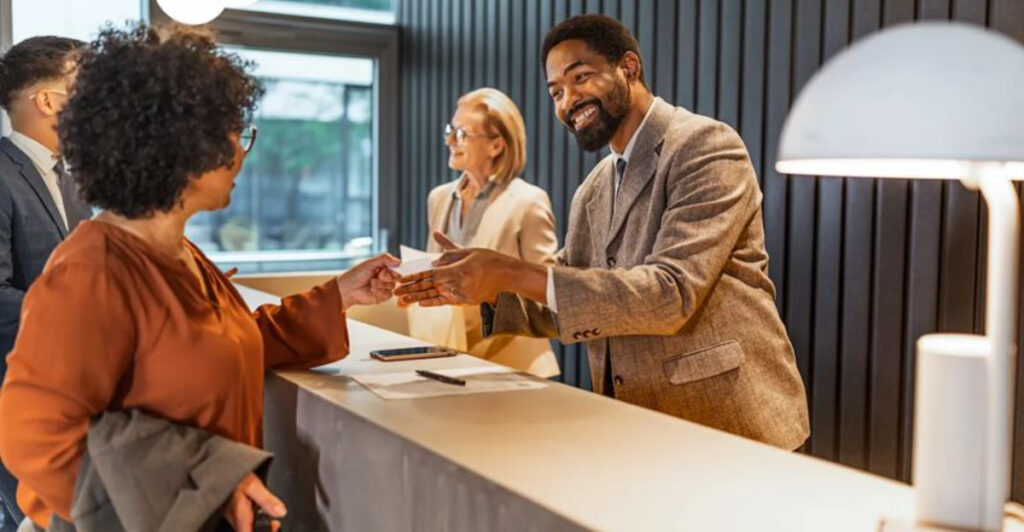Hotel staff have seen it all – from minor mishaps to serious safety issues that could have been prevented with simple precautions. Smart travelers know that a few quick safety checks can make the difference between a relaxing stay and a dangerous situation. These insider tips come straight from experienced hotel professionals who want to keep you safe and secure during your travels.
1. Before You Book, Confirm Basic Fire Safety
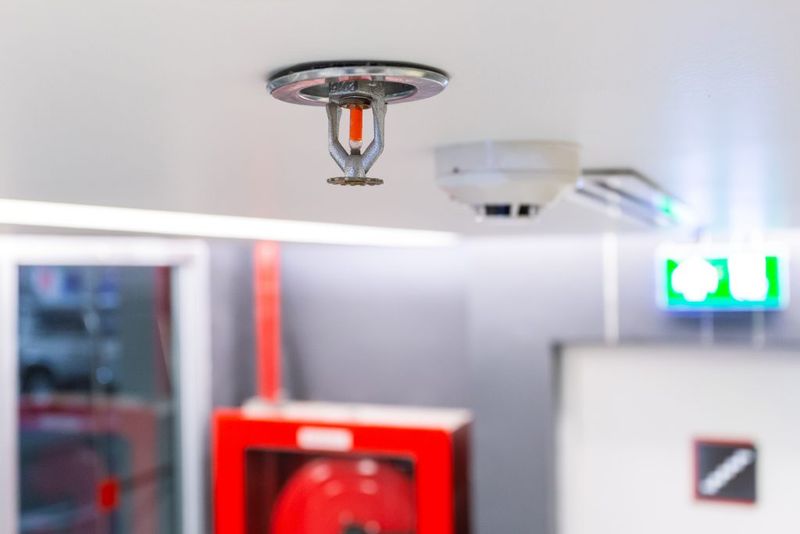
Smart booking starts with fire safety research. Properties equipped with hard-wired smoke alarms and automatic sprinklers offer the best protection for guests.
U.S. fire agencies strongly recommend choosing hotels with these essential safety features. The U.S. Fire Administration maintains a Hotel-Motel National Master List that catalogs fire-safe properties used by federal travelers.
This database serves as an excellent starting point for safety-conscious travelers. Taking five minutes to verify these features before booking could save your life during an emergency situation.
2. Keep Your Room Number Private at Check-In
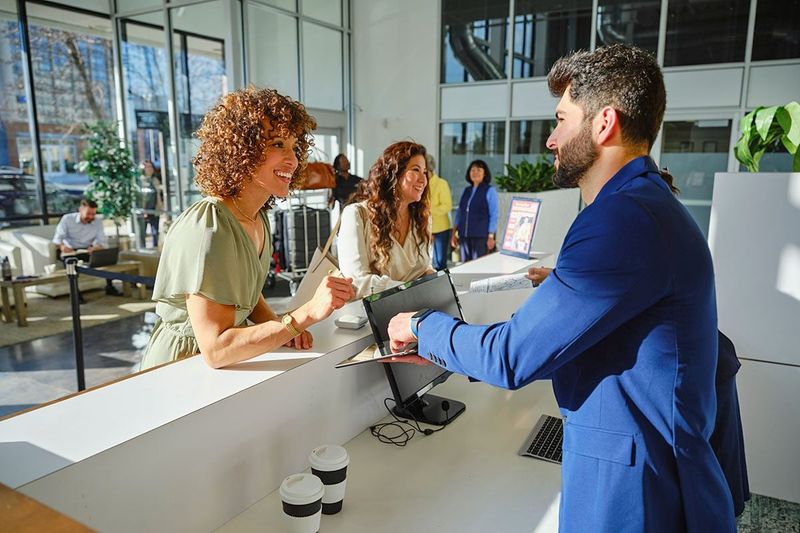
Professional hotel security starts at the front desk with a simple but crucial practice. The clerk should write your room number on paper instead of announcing it aloud.
You shouldn’t repeat the number either – this prevents nearby strangers from overhearing your location. This standard security etiquette appears in professional hotel-security guidance used by industry professionals.
If a clerk does say your room number out loud, politely ask them to write it down instead. This small step protects you from potential theft or unwanted visitors throughout your stay.
3. Do a Two-Minute Room Sweep and Test Essentials
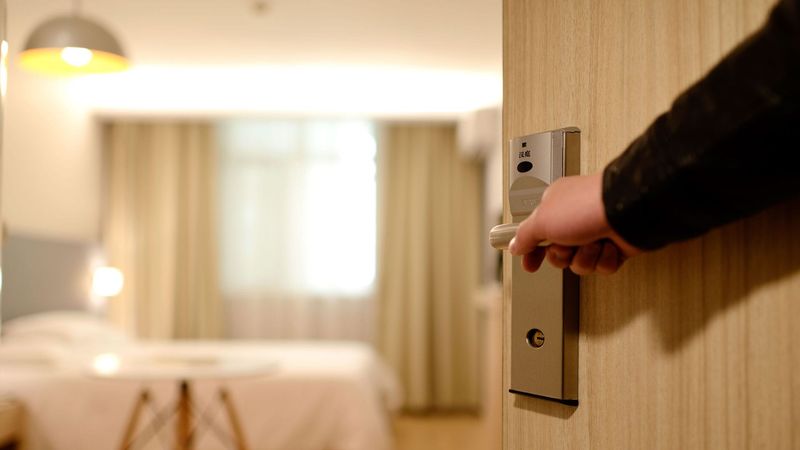
Your safety inspection begins the moment you enter your room. Check behind curtains and under the bed for any unwanted surprises or security concerns.
Test that the phone works properly – you’ll need it for emergencies. Verify that all doors, windows, and connecting-room locks secure properly and function smoothly.
The State Department includes these items in their official room safety checklist for government travelers. This quick sweep takes only two minutes but provides peace of mind for your entire stay.
4. Know Your Exits and Count the Doors
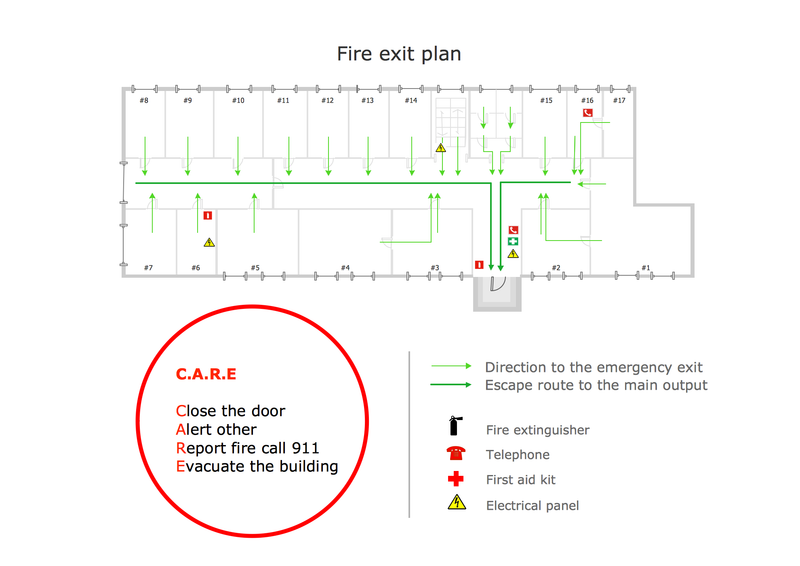
Emergency preparedness means more than just reading the evacuation plan posted on your door. Locate two different stairways in case one becomes blocked during an emergency.
Count the number of doors from your room to the nearest exit – this helps you navigate in darkness if smoke fills the hallway. Keep shoes and your room key beside your bed for quick access.
These classic fire-safety steps come directly from USFA and NFPA recommendations. Practice walking to both exits so you know the route by feel, not just sight.
5. Use Every Lock, Every Time
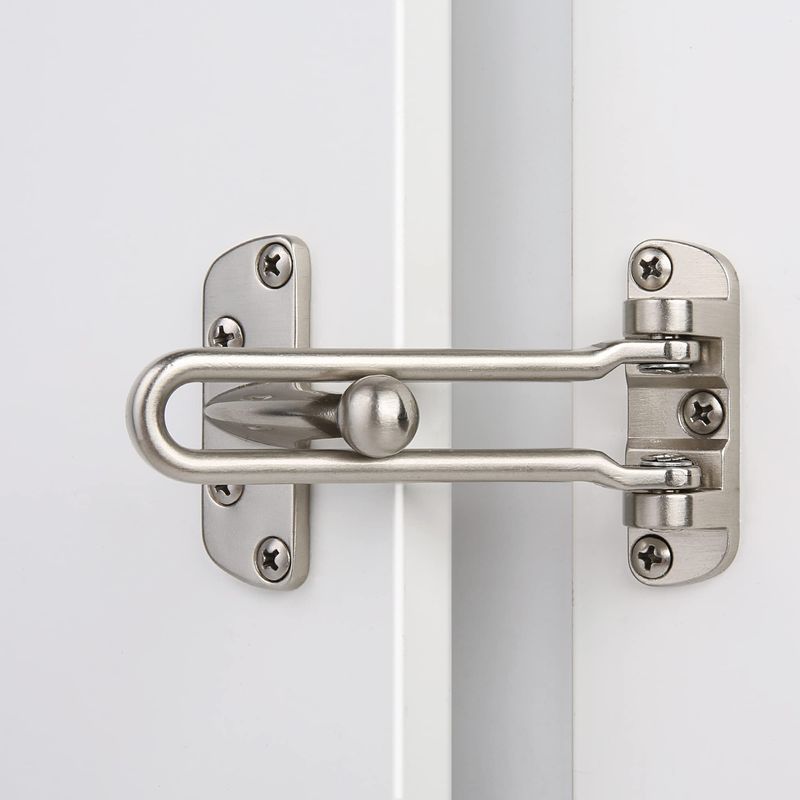
Multiple locks provide multiple layers of protection during your stay. Engage both the deadbolt and swing-bar whenever you’re inside your room, even during short breaks.
Always use the door viewer before opening to unexpected visitors. If someone claims to be hotel staff, call the front desk to confirm their identity first.
Better yet, meet them in the lobby instead of your room, following State Department guidance for traveler safety. These simple habits become second nature and significantly improve your personal security throughout your stay.
6. Carbon Monoxide Caution: Confirm a Detector or Bring One
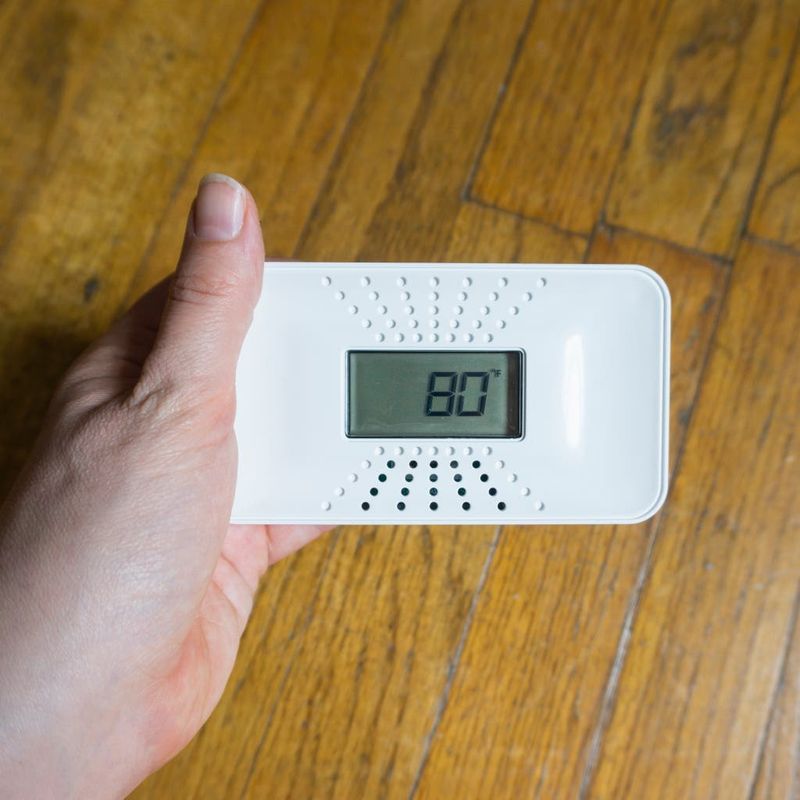
Carbon monoxide poses a silent, deadly threat that many travelers overlook. This colorless, odorless gas can be fatal, yet not all lodging properties have in-room detectors.
The State Department advises asking about CO alarms during booking or bringing a portable detector when traveling. Recent reporting highlights why portable CO detectors are increasingly recommended for travelers.
CDC resources explain the symptoms of CO poisoning, which include headaches, dizziness, and nausea. A small, battery-powered detector costs less than twenty dollars but provides invaluable protection for you and your family.
7. Protect Yourself on Hotel Wi-Fi
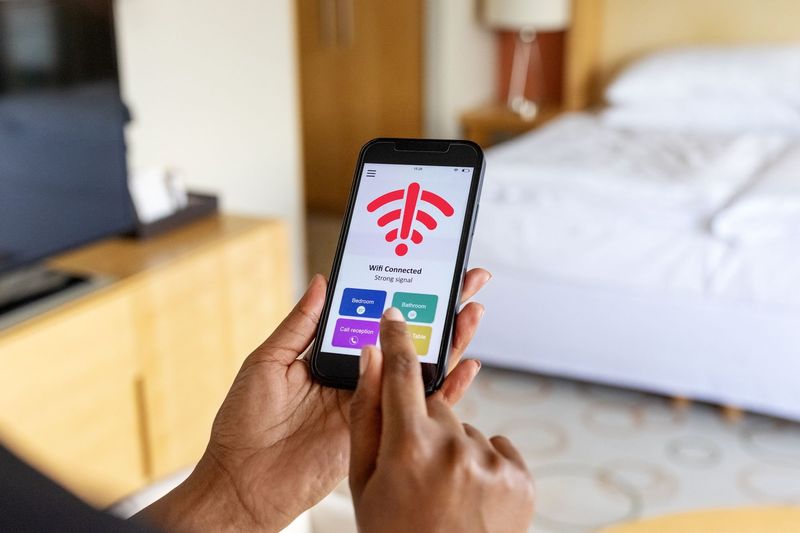
Hotel Wi-Fi networks present significant security risks for sensitive online activities. Open networks allow other users to potentially intercept your personal information and passwords.
Avoid logging into banking accounts or making online purchases while connected to hotel internet. The FTC recommends using precautions such as VPN services or cellular data instead.
If you must use hotel Wi-Fi, stick to basic browsing and avoid entering credit card numbers or social security information. Your personal data deserves better protection than most hotel networks can provide.
8. Shut Down the Front Desk Phone Scam
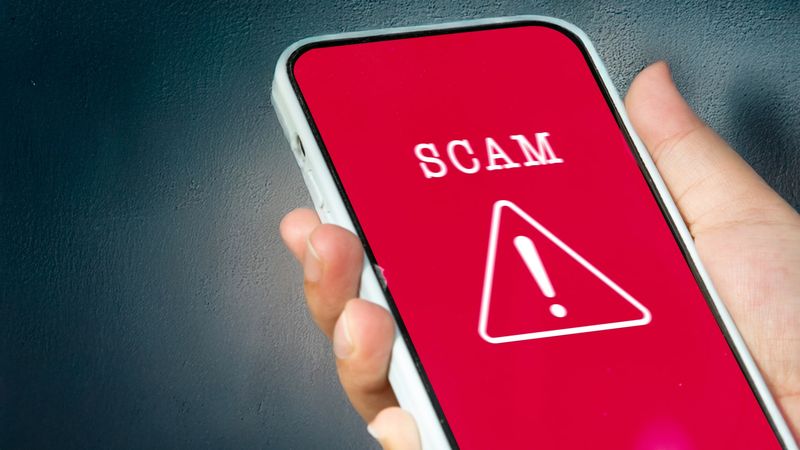
Scammers frequently target hotel guests with convincing phone calls requesting credit card verification. If someone calls claiming they need to re-verify your payment information, hang up immediately.
Contact the front desk yourself by calling the main number or walking down in person. Consumer-protection agencies and police advisories have documented this tactic for years across the country.
Legitimate hotels never call rooms asking for credit card details – they already have this information from check-in. Trust your instincts and verify any suspicious requests through official hotel channels before providing personal information.
9. Quick Bed Bug Check Before You Unpack
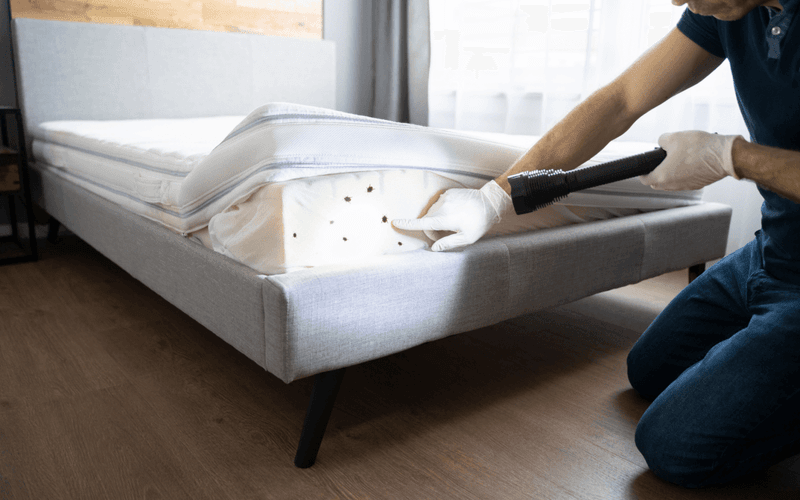
Bed bugs travel home with unsuspecting guests, creating expensive infestations that take months to eliminate. Park your luggage on the luggage rack while you inspect the sleeping area.
Pull back sheets and examine mattress seams and headboard crevices for dark spots or live bugs. EPA, CDC, and industry groups recommend this inspection to avoid bringing pests home.
If you discover signs of bed bugs, request a room in a different area of the hotel or switch properties entirely. The inconvenience now prevents a much bigger problem later at your own home.
10. Keep Keys Separate and Meet Strangers in Public Spaces
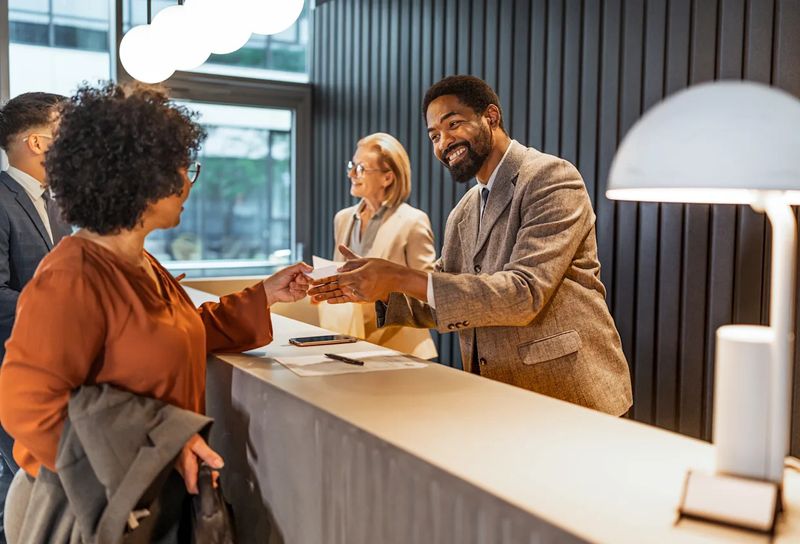
Room key security extends beyond just keeping it safe from theft. Carry your key separately from any sleeve or folder that displays your room number clearly.
If the key gets lost or stolen, the finder won’t immediately know which room it opens. Always meet visitors, delivery people, or new acquaintances in the lobby rather than your room.
Both practices appear in the State Department’s official lodging safety guidance for government travelers. Public spaces provide witnesses and security cameras that protect you from potential dangerous situations or theft attempts.

